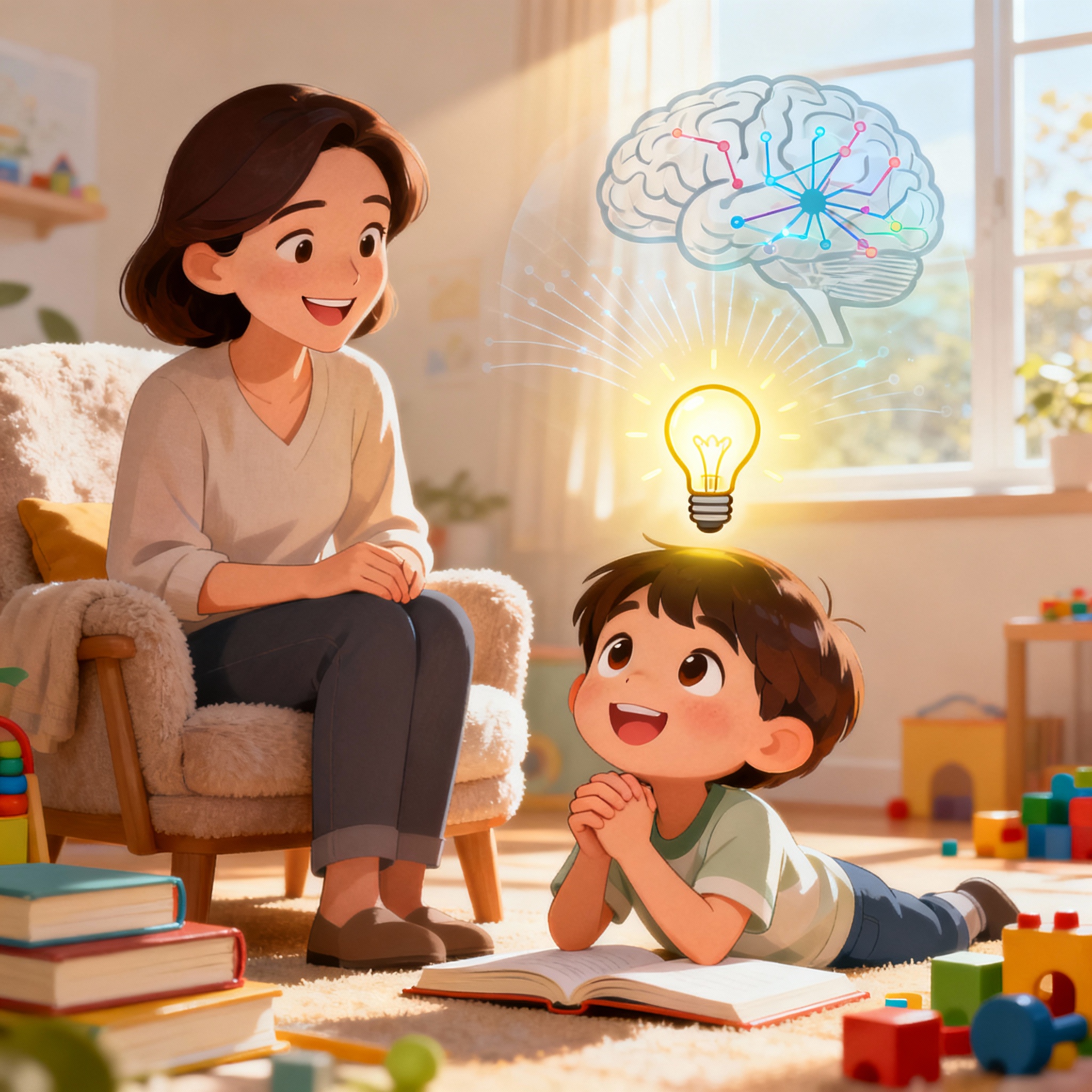46 Questions Daily: Why Kids Ask & How to Answer (2025)

Kids ask 46 questions daily (Nov 2025 research). Brain science behind curiosity, why 35% parents can’t answer, how to nurture STEAM skills without losing sanity
46 Questions Daily: Why Kids Ask & How to Answer
Kids ask 46 questions per day (2,000 parent study). Brain science reveals why. 35% of parents can’t answer. Discover how to nurture curiosity, STEAM skills, and critical thinking—without losing your sanity.

The reality of parenting: handling curiosity overload while maintaining sanity
The Latest Study That’s Changing How We Parent
Last Updated: November 2025 | A groundbreaking 2,000-parent survey published in November 2025 by Lightbridge Academy reveals a shocking statistic: children ask an average of 46 questions per day. This research has ignited conversations worldwide about childhood curiosity, brain development, and the parenting challenge of answering endless “whys.”
What makes this finding even more significant? 35% of parents report they don’t know how to answer their child’s questions effectively. Simultaneously, 77% of modern children show MORE curiosity than their parents did at the same age—a sign of changing times, enhanced media exposure, and evolving learning expectations.
⚡ The Critical Stats Every Parent Must Know:
- 46 Questions Daily: That’s roughly 1 question every 2 minutes children are awake!
- 35% Answer Gap: Over one-third of parents feel inadequately prepared to respond
- 77% More Curious: Today’s children are significantly more inquisitive
- Peak Questioning Age: 4-7 Years: The sweet spot where “why” becomes an obsession
- By Age 5: 40,000+ Questions: Kids accumulate over 40,000 questions by kindergarten
- STEAM Skills Correlation: 92% of parents want curiosity-driven STEAM learning
🧠 Brain Science Behind the 46 Questions
The neurological explanation for relentless questioning is fascinating: when a child asks a question and receives a thoughtful answer, their brain releases dopamine—the same neurotransmitter triggered by rewards. Curiosity creates a dopamine loop that actually trains the brain to seek more information.
This isn’t a flaw in child development—it’s a feature! Frequent questioning during early childhood is directly linked to:
- Higher IQ scores (10-15 point advantage)
- Better problem-solving skills
- Improved academic performance
- Enhanced creativity
- Stronger parent-child bonding

Reframing curiosity: learning moments create stronger parent-child bonds and smarter kids
🎯 How Curious Is Your Child? Quick Assessment
Take this 4-minute quiz to understand your child’s curiosity level
How to Handle 46 Daily Questions (And Love It)
1. Answer with Curiosity
Don’t just provide answers. Ask back: “What do you think?” This teaches critical thinking and extends learning.
2. Use “I Don’t Know” Strategically
“Great question! Let’s find out together.” Models lifelong learning and shows that not knowing is an opportunity.
3. Create “Question Time”
Designate specific times for deep questions. Teaches patience while ensuring quality engagement.
4. Keep a “Question Journal”
Write down unanswerable questions to research together later. Shows respect for their curiosity.
5. Encourage Experimentation
“Let’s test it!” Turns questions into STEAM activities. Hands-on learning creates stronger neural pathways.
6. Celebrate Big Questions
“That’s a GREAT question!” Reinforces curiosity as a valued trait. Children feel encouraged to ask more.
7. Connect Questions to Real Life
“Great point! Let’s see this in action…” Links abstract learning to concrete experiences.
8. Practice Self-Care
It’s OK to say “I need 10 minutes quiet time.” Modeling boundaries teaches healthy emotional regulation.
💚 Real Parent Success Story:
“Arya’s 5-year-old was asking 60+ questions daily. I felt inadequate. Then I reframed it: instead of ‘too many questions,’ I saw ‘curious genius.’ Now we do weekly experiments, keep a question journal, and I say ‘I don’t know – let’s find out!’ She’s thriving academically and our bond is stronger than ever.”
— Neha P., Delhi (Kideos Station Community)
🧬 The STEAM Connection: Why Curiosity = Future Success
Research from MIT (2024) shows that children who ask questions consistently during ages 4-7 demonstrate significantly higher STEM aptitude by age 12. 92% of parents want their children to develop STEAM skills—but few understand that curiosity IS the gateway.
Every “why” question is literally building neural pathways for problem-solving, creativity, and innovation. When parents encourage questioning, they’re investing in their child’s future success.
What Scientists Say About the 46 Questions
🔬 2025 Research Highlights:
- Lightbridge Academy Study (Nov 2025): 46 questions/day from 2,000 surveyed parents
- Dopamine Loop Discovery: Each answered question triggers reward pathways, training curiosity
- MIT Research (2024): Questioning at ages 4-7 predicts STEM aptitude at 12+
- Neuroplasticity Finding: Questions literally build neural connections for problem-solving
- Parental Impact: Parents who encourage questions have children with 10-15 point IQ advantage
- STEAM Correlation: 92% of parents want STEAM skills; curiosity is the foundation
🌟 Embrace the Curious Mind
Join Kideos Station’s community of 100,000+ parents who celebrate curiosity and foster STEAM learning.
Access STEAM Resources → Get Expert Advice →💪 Your Parenting Mindset Shift
🎯 Remember:
- 46 questions daily is NORMAL: Not a burden—a sign of healthy development
- 35% answer gap is OK: “I don’t know, let’s discover together” teaches more
- 77% more curious than ever: Today’s kids are smarter because they ask more
- Questions build STEAM skills: Every “why” is an investment in future success
- Curiosity = Stronger bonds: Engaged conversations deepen parent-child connection
- You don’t need all answers: Curiosity and exploration matter more than knowledge
- This phase is precious: Someday you’ll miss these 46 questions a day
Your child’s constant questioning isn’t an interruption to manage—it’s an opportunity to witness the development of a brilliant mind. Those 46 questions? They’re not a problem to solve. They’re a gift to cherish.
The next time your child asks “why” for the 100th time, take a breath and smile. Their curious brain is doing exactly what it should be doing. And you’re the guide on this incredible journey.
For more parenting wisdom, STEAM activity ideas, and community support, visit Kideos Station – where 100,000+ Indian parents nurture curious, innovative minds! 🌈




